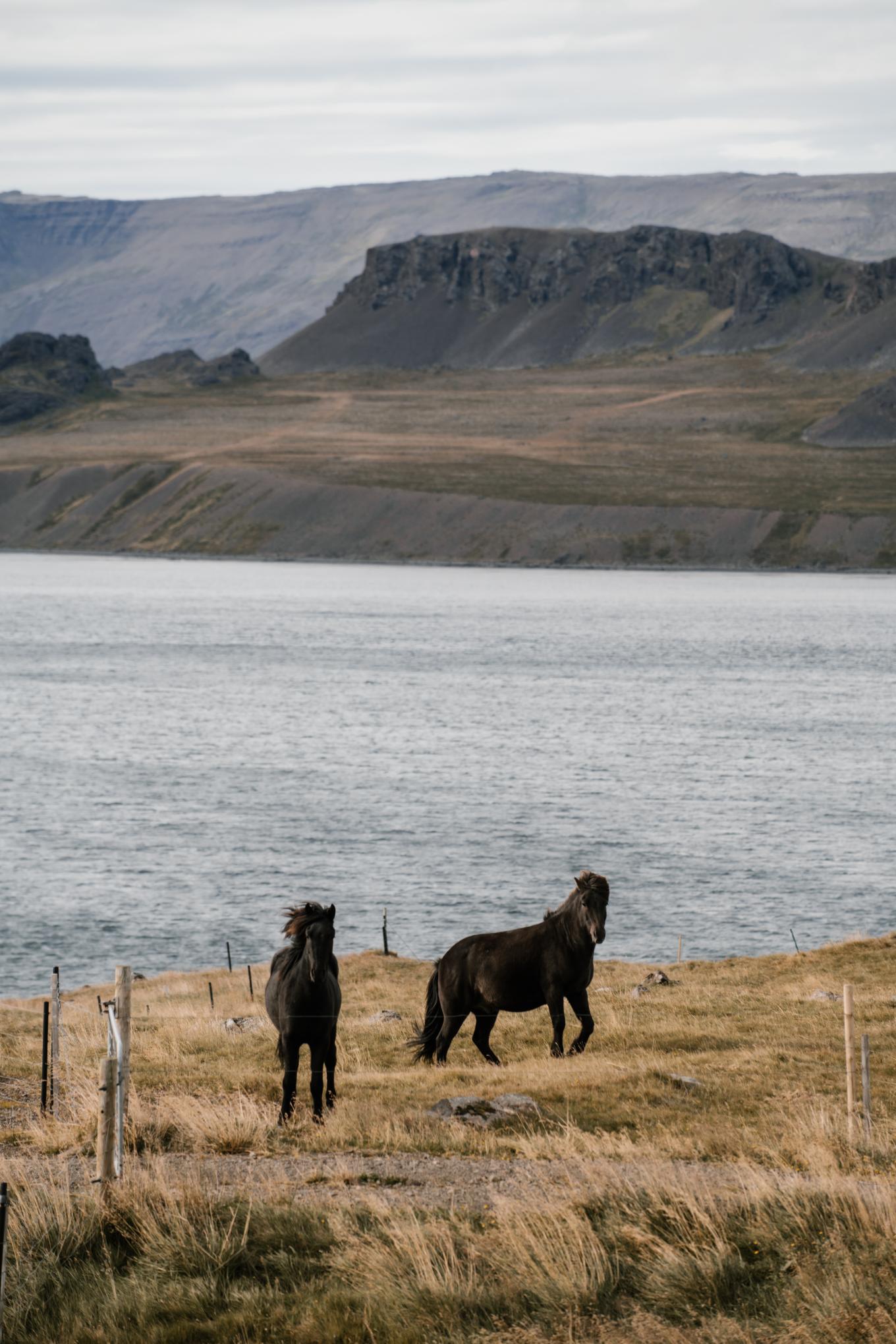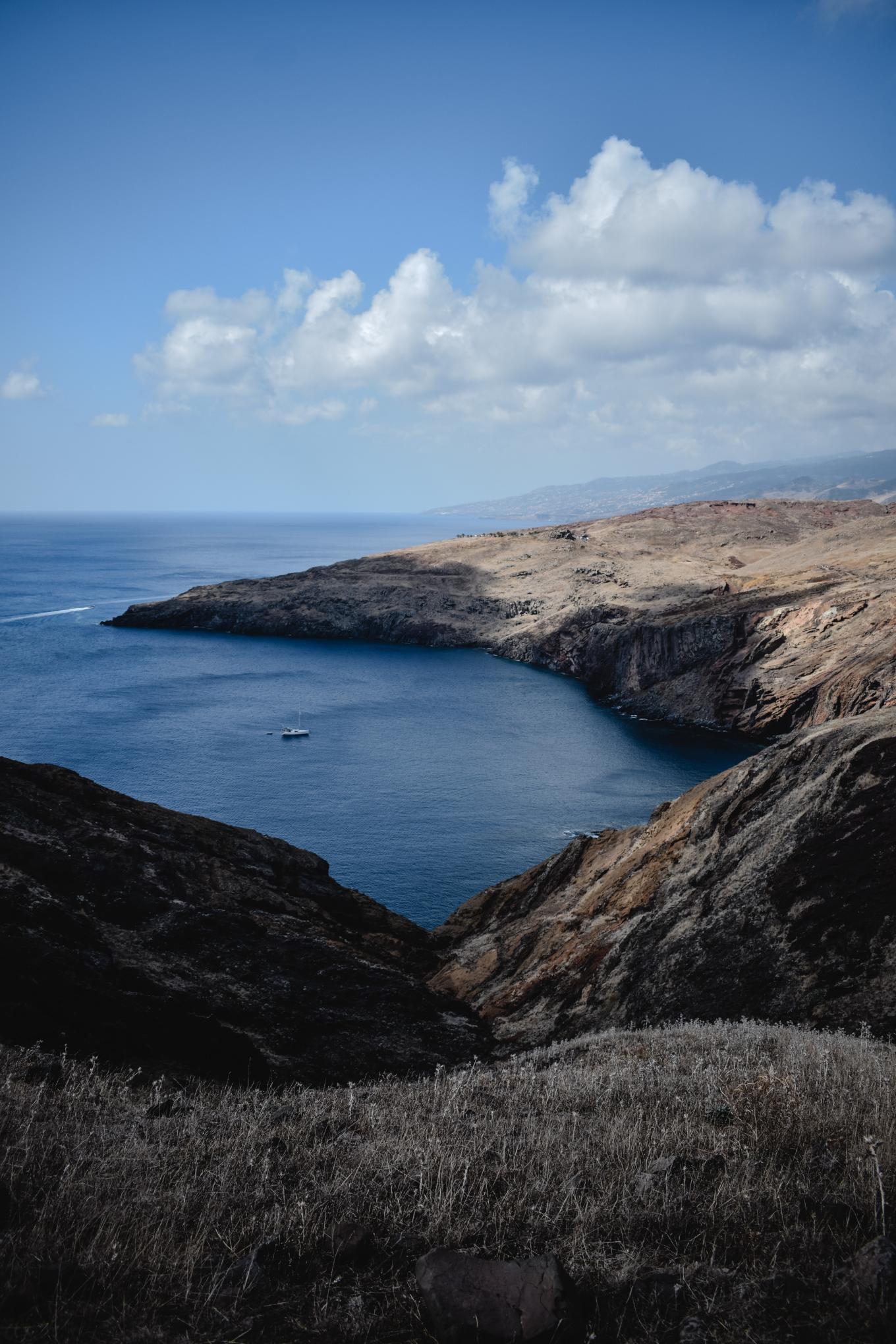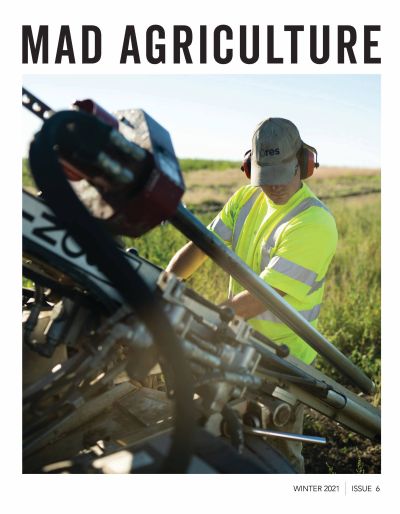
The Mad Agriculture Journal
From our Farms to our Ocean
Published on
November 12, 2021
Written by
Tabitha Birdwell
Food production systems have expanded to meet food demand, leading to the excessive discharge of agrochemicals, organic matter, drug residues, sediment, saline, and other contaminants into local waterways. Their release harms aquatic ecosystems, human health, and economic sectors (FAO, 2017).
Pesticide accumulation is a long-recognized stressor for human health and water quality and has led to the banning of certain chemicals like DDT. Other agricultural practices, like the use of synthetic fertilizers, monocropping, and specific irrigation processes, also negatively impact the health of our waterways and ocean. A combination of these practices and other stressors has led to the eutrophication of lakes, reservoirs, ponds, and coastal waters. Eutrophication, the excessive accumulation of nutrients in water bodies, impacts water sources’ biodiversity and recreational activities. It also affects water quality and the bottom line for many economic sectors. Countries within the Organization for Economic Co-operation and Development (OECD) - which includes the US - have estimated environmental and social costs of water pollution from agricultural methods to exceed billions of dollars annually (FAO, 2017).
The social cost of water pollution affects many Americans, including Iowa farmer Seth Wakins, whose family’s health was directly affected by the impacts of conventional farming on local water quality. Seth, embracing his grandmother’s legacy (Jessie Field Shambaugh, founder of 4-H), decided to transition to conservation farming practices and embrace the 4-H motto of “To make the best better.” Now, Seth works with various groups, including the Inland Ocean Coalition, to spread awareness to the public and other producers about the importance of prioritizing the health of our land and watersheds.

Water quality deterioration from agricultural practices is not only a concern for farmers who want to minimize their environmental impacts. The health of water bodies impacts all producers using water as an input in their production processes. Currently, agriculture is responsible for 70% of all global freshwater withdrawals (World Bank, 2020) and is used for irrigation, crop cooling, fertilizer application, and other agricultural practices. Any contaminants carried in the source water transfer into the production process. The Center for Disease Control and Prevention (CDC) has noted that the use of contaminated water in the production system affects the quality of food crops and can lead to illness for those consuming the products.
Climate change has become another concern for producers as global water demand increasingly outpaces freshwater supply, straining traditional water allocation practices. The growing stress on global freshwater requires sectors to increase their water use efficiency by 25-40%, calling for systemic changes in food production (World Bank, 2020). The uncertainty surrounding freshwater supply, combined with the impacts of contaminated source water on production, raises concerns for farmer incomes and the global food supply.
The environmental impacts of conventional agricultural practices extend beyond local water quality deterioration as their harmful effects flow downstream and impact the sensitive ecosystems at our coastlines.
The eutrophication of connected water bodies can lead to the depletion of oxygen levels in coastal ecosystems. When oxygen levels drop, organisms begin to compete for the resource. Increasingly, algae win the battle for oxygen demand and prevent other key species from surviving. The drop in oxygen levels leads to the degradation of coral reefs, mangrove forests, and other structural components of coastlines (Malone). The loss of these components facilitates the erosion of coastlines, our primary defense against harsh storms (UMass Amherst).
The weakening of natural storm defenses is just one impact on human safety caused by nutrient overload. Another impact comes from the toxic bacteria released from the harmful algae blooms brought on by eutrophication. The bacteria prevent coastal economic and recreational activities because they create respiratory problems for nearby communities (UMass Amherst). The bacteria also contribute to the dying off of marine species caused by the ecosystems’ overall deterioration. The die-offs caused by oxygen depletion and toxic bacteria have created an estimated 700 “dead zones” worldwide, one of the largest of which is located where the Mississippi River meets the Gulf of Mexico (Malone).

As nutrient overloads facilitate eutrophication, oxygen depletion and toxic bacteria will continue to weaken the coastal ecosystems that support our seafood and recreational economies. It will also undermine our storm defenses at a time when rising ocean temperatures are increasing storm intensities. As these “dead zones” expand beyond our coastlines, they will further impact the health of our ocean by contributing to the expanding issue of ocean acidification (reduction in the pH of the ocean over an extended period of time).
The connections between our natural environments urge us to acknowledge how the decisions we make inland impact the health of our waterways and ocean. In turn, we are able to recognize how these impacts affect our interconnected communities and economies.
The importance of acknowledging our interconnectedness is why Vicki Nichols Goldstein founded the Colorado Ocean Coalition in 2011, which transitioned to the Inland Ocean Coalition (IOC) in 2017. The Inland Ocean Coalition is a project of The Ocean Foundation and is dedicated to improving the relationships between the inland, the coasts, and the ocean by building land-to-sea stewardship. Vicki first saw the importance of creating such a movement when her family relocated to land-locked Colorado. There, she was unable to find a community organization with an inland focus on ocean issues and was determined to create an inland movement that educates communities on the importance of our ocean for the future of life on Earth. The IOC empowers communities to advocate for the ocean and works with its chapters and supporters around the country to convey to legislative leaders that we all have a stake in ocean protection, no matter where we live.
Over the years, the IOC has addressed a wide array of ocean issues and has recently taken on the growing concern of nutrient pollution in ocean ecosystems. The IOC was inspired to address the issue by the film Ocean Frontiers: The Dawn of New Era in Ocean Stewardship. In the film, Iowa farmers are taken to the Gulf of Mexico to experience the highlights of Mississippi River fishing and the consequences of uncontrolled agricultural runoff. The film echoes several of IOC’s key messages, including the idea that everyone has a stake in protecting the ocean and that inlanders have the power to be some of the greatest ocean champions.
Inspired by the film to address the impacts of nutrient pollution, IOC has developed a campaign that focuses on the role of land practices in ocean health. Created in 2021, the IOC’s Ocean-Friendly Farming (OFF) campaign works to build stewardship for watershed and ocean health issues among communities and landowners. The campaign brings awareness to the effects of land-use practices on the environment and aims to inspire individuals, communities, and landowners to actively support and use land practices that protect watershed and ocean health.
To encourage individuals and communities to support ocean-friendly land practices, the IOC has created and shared material on its website about conservation farming benefits. In addition, the IOC developed a list of Ocean-Friendly Land Practices that have either a direct or indirect benefit to watershed and ocean health.
The OFF campaign emphasizes education and inland stewardship amongst landowners, farmers, and ranchers. However, the IOC is working towards building the OFF campaign into an interactive platform for inland community support and legislative advocacy in favor of policy changes that prioritize land practices that support healthy soil and a healthy ocean.
The IOC has also created a growing list of endorsed producers from across the nation who use ocean-friendly land practices in their production process. This list serves to encourage individuals to purchase from these producers in support of their work. The endorsed producers are part of the campaign’s Ocean-Friendly Farming community. This community is the IOC’s way of recognizing and sharing the stories of inland ocean champions who have dedicated themselves to using ocean-friendly land practices.
The Inland Ocean Coalition is excited to become involved in this aspect of watershed and ocean health. We look forward to the solutions and partnerships we will witness as inland ocean champions tackle nutrient pollution.
If you, or someone you know, are interested in becoming a part of the Ocean-Friendly Farming campaign as either an educational partner or an Ocean-Friendly Farmer, please reach out to IOC Program and Outreach Manager, Melissa Jung, at melissa@inlandoceancoalition.org.
The Inland Ocean Coalition (IOC) is a non-profit dedicated to improving the relationships between the inland, the coasts, and the ocean by building land-to-sea stewardship. IOC encourages inlanders to connect with the ocean and to advocate for its protection based on the truth that without a healthy blue planet, we can’t have a healthy green one.
